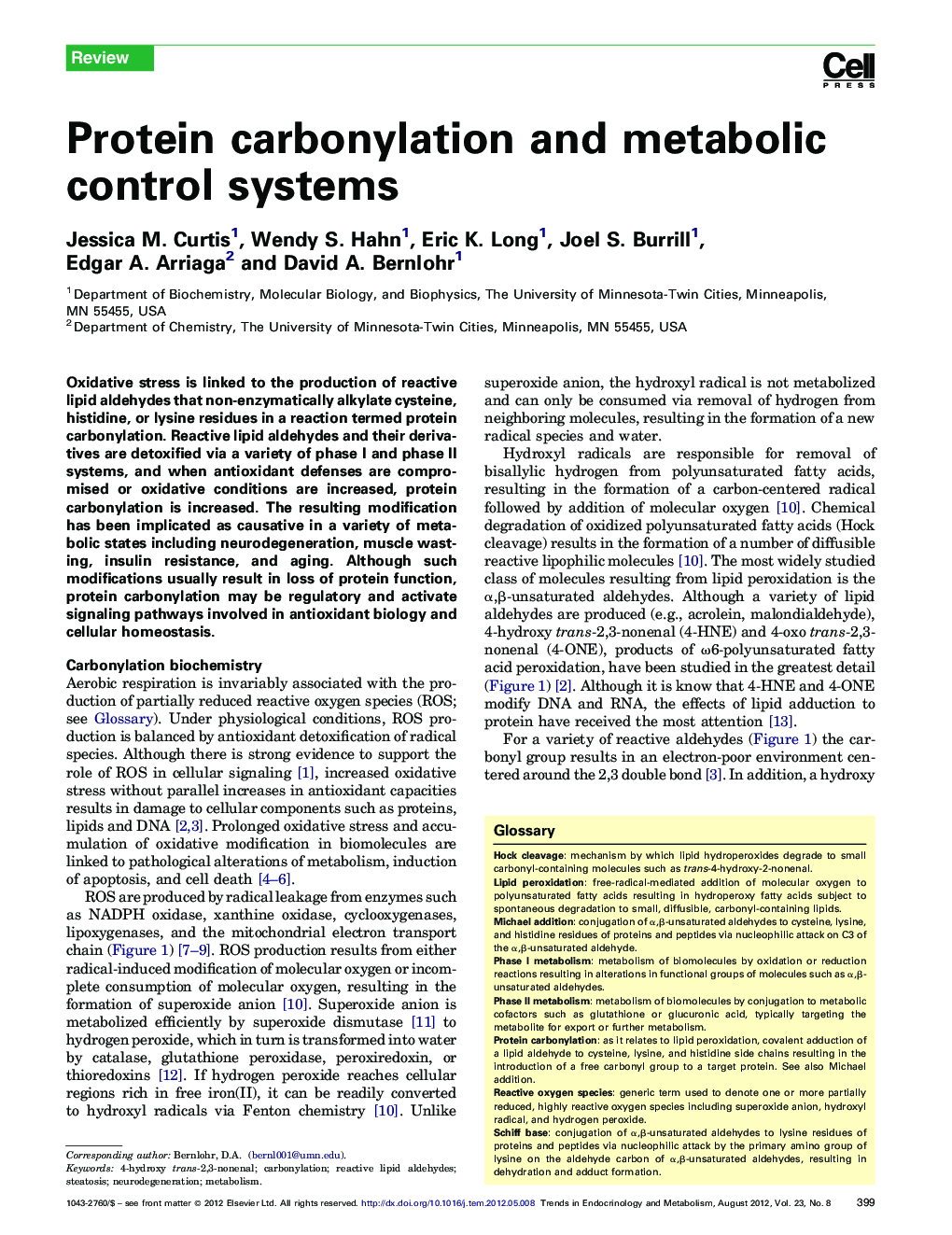| Article ID | Journal | Published Year | Pages | File Type |
|---|---|---|---|---|
| 2810515 | Trends in Endocrinology & Metabolism | 2012 | 8 Pages |
Oxidative stress is linked to the production of reactive lipid aldehydes that non-enzymatically alkylate cysteine, histidine, or lysine residues in a reaction termed protein carbonylation. Reactive lipid aldehydes and their derivatives are detoxified via a variety of phase I and phase II systems, and when antioxidant defenses are compromised or oxidative conditions are increased, protein carbonylation is increased. The resulting modification has been implicated as causative in a variety of metabolic states including neurodegeneration, muscle wasting, insulin resistance, and aging. Although such modifications usually result in loss of protein function, protein carbonylation may be regulatory and activate signaling pathways involved in antioxidant biology and cellular homeostasis.
